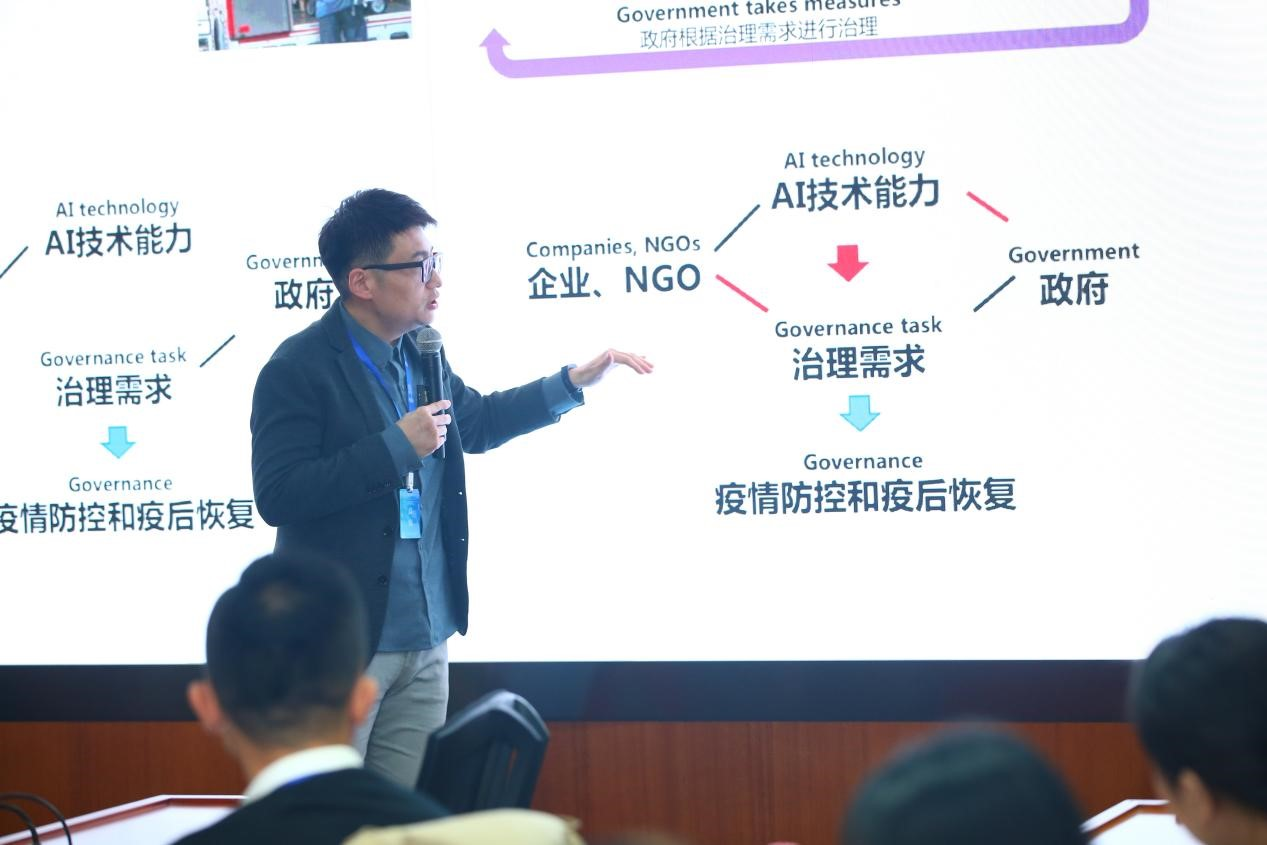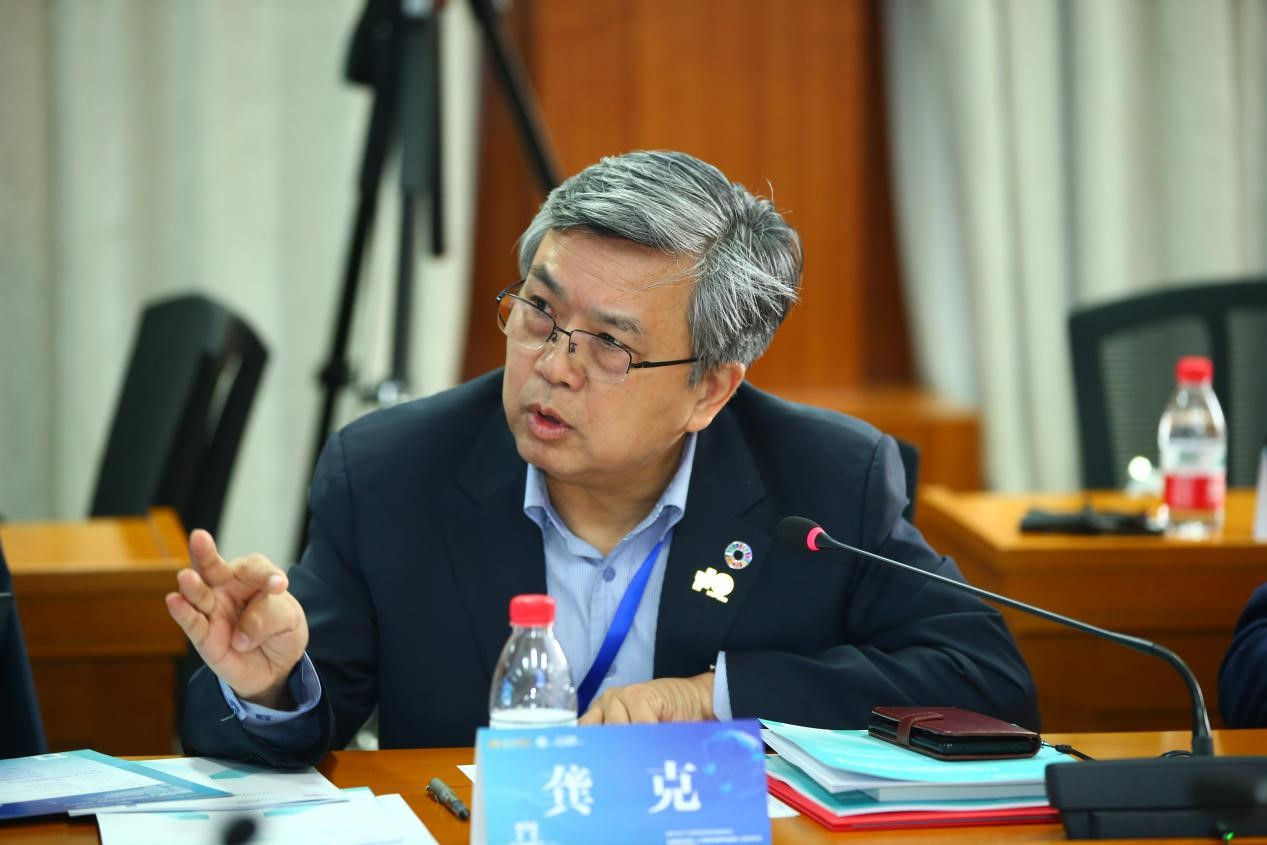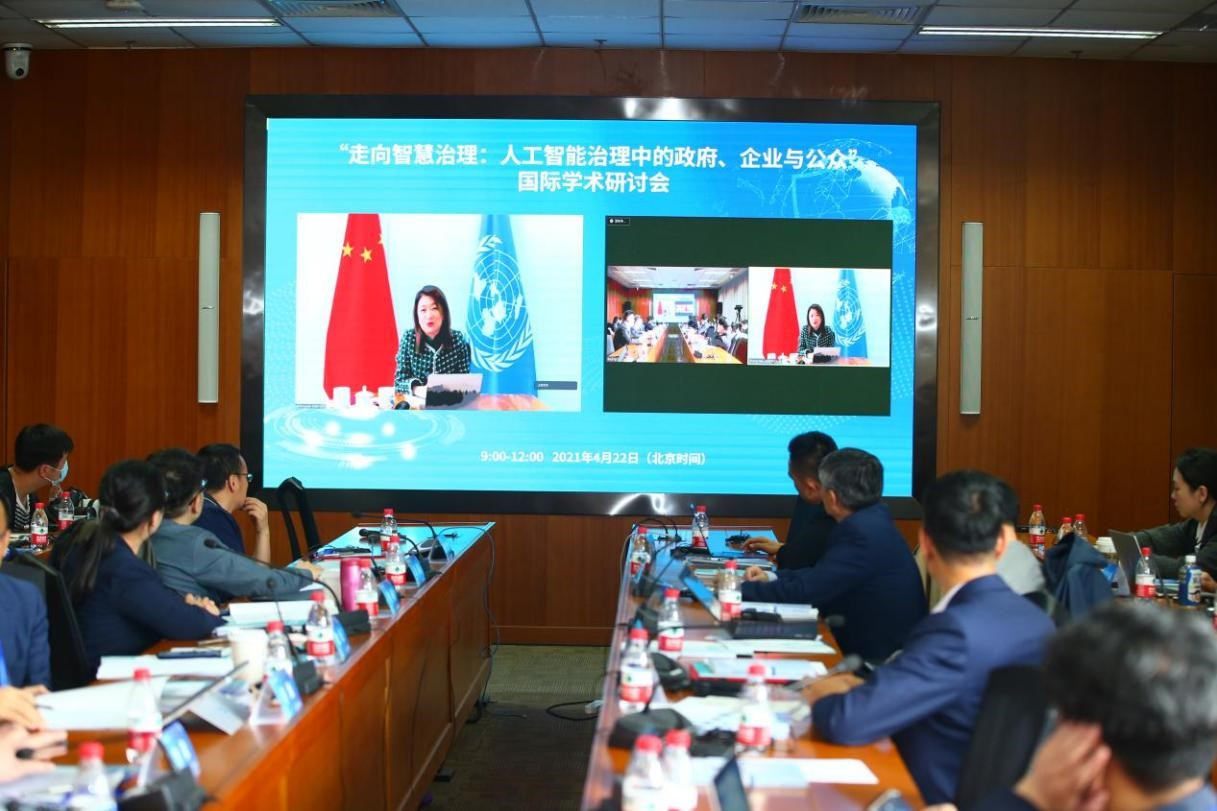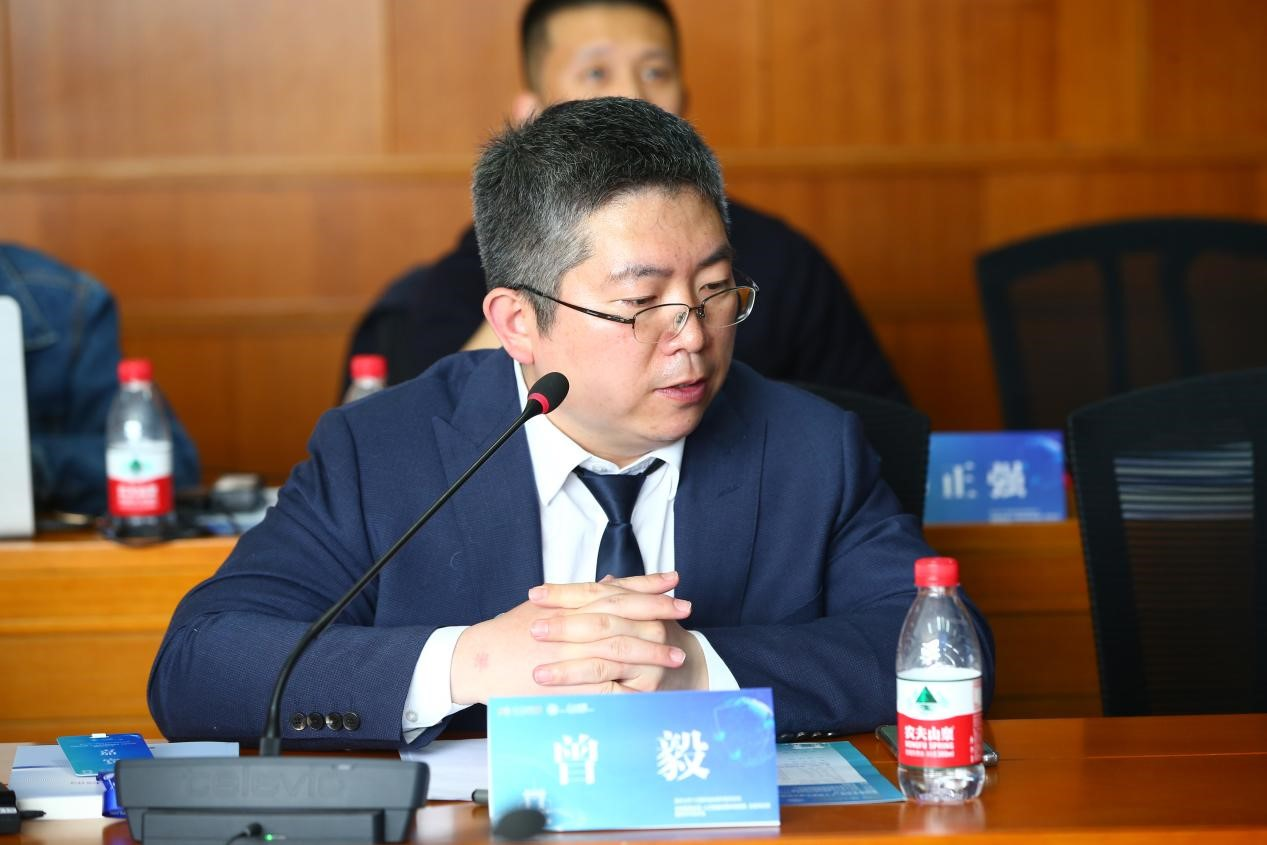Tsinghua University issued a report on Thursday to explain the vital role of artificial intelligence (AI) technologies in improving China's epidemic prevention and control efforts and facilitating the resumption of work and production.
Following China's extensive use of AI technologies in controlling the pandemic and economy recovery, the report studied the integrative mechanisms and social organizational architectures that manage the cooperation between government and enterprises, and further provided suggestions on AI governance for both policymakers and China's social sector.
Proactive and competent enterprises, government with AI adaptive abilities, and a great number of linking departments between these two are what enabled China to give full play to AI technologies in preventing and controlling the epidemic, said the report.

Yu Yang, author of the report and assistant professor at the Institute for Interdisciplinary Information Sciences of Tsinghua University, presents the report’s findings on April 22, 2021. [Photo courtesy of Tsinghua University]
Yu Yang, author of the report and assistant professor at the Institute for Interdisciplinary Information Sciences of Tsinghua University, explains the dynamics of the cooperative mechanisms. Yu's presentation further elaborated on enterprises' growing awareness of public governance, government bodies' algorithmic thinking, and the flexible links in the middle.
AI technologies have been applied extensively across China since the early outbreak of COVID-19. For instance, research bodies like the Chinese Academy of Science (CAS) established various big-data-based models to evaluate the flow of people, especially during national holidays, and develop early-warning systems for potential outbreaks.
Last August, tech giant Baidu introduced its Linearfold algorithm, which is 120 times faster than traditional means in predicting secondary structure information of COVID-19's RNA sequence. AI technologies have also been widely used for drug development, CT image reading, preventive supplies distribution, temperature screening in public spaces, as well as movement tracking.
However, other studies indicated that a considerable amount of personal information such as ID numbers and biometric data has also been collected by third-party agencies. This raised concerns among scientists and policy-makers about the potential ethical and technological risks of AI. Conversely, experts also suggest that new technology products may be more inclusive and friendly to the elderly.

Gong Ke, president of the World Federation of Engineering Organization and executive director of the Chinese Institute for New Generation Artificial Intelligence Development Strategies, speaks during the report presentation on April 22, 2021 in Tsinghua University. [Photo courtesy of Tsinghua University]
Given this, Gong Ke, president of the World Federation of Engineering Organization, urged researchers to focus on the weak links of AI in epidemic prevention. Gong also called for more research efforts which implement AI governance principles on the fundamental AI elements such as data, algorithm, computation, application scenarios, and personnel involved. Gong stresses the international governance should be based on the common demands of all people of the world but not the national labels; more efforts should made to identify the common interests and promote global consensus.

Zhang Wei, assistant resident representative of UNDP China, speaks virtually during the report presentation on April 22, 2021 in Tsinghua University. [Photo courtesy of Tsinghua University]
"More efforts should be made toward building a resilient and responsible digital society," said Zhang Wei, assistant resident representative of UNDP China. Zhang urged relevant stakeholders to fully address the ethical issues of AI, the need to help disadvantaged groups, and the risk of data leaks.

Zeng Yi, a professor at the Institute of Automation of the CAS, speaks during the report presentation on April 22, 2021 in Tsinghua University. [Photo courtesy of Tsinghua University]
Zeng Yi, a professor at the Institute of Automation of the CAS, noted that China's AI governance efforts could play a bigger part in building global capacity on the issue. "I think that China's technological exploration and governance can bring benefit to the rest of the world, and help build a community with a shared future for humanity in the field of healthcare," Zeng said.